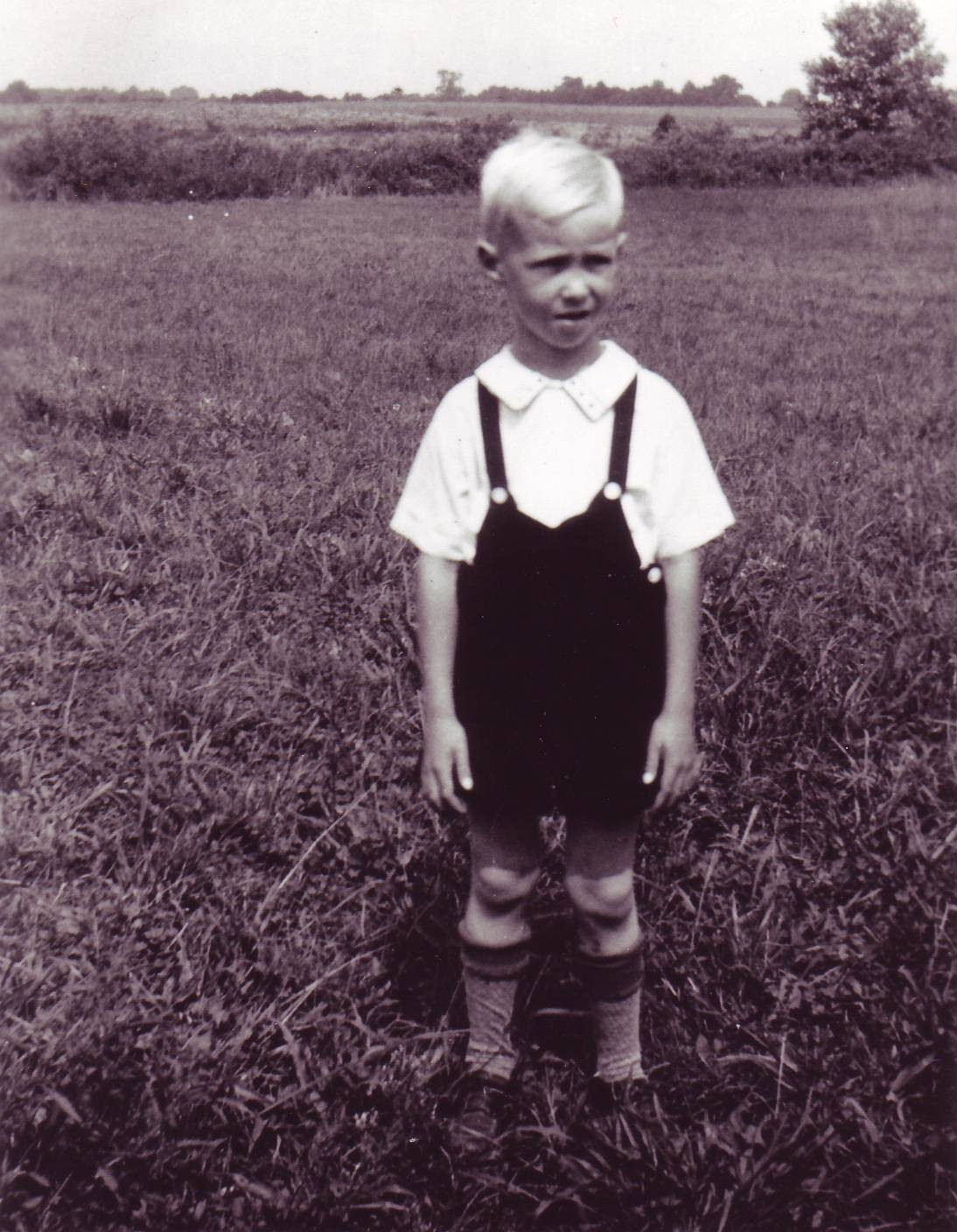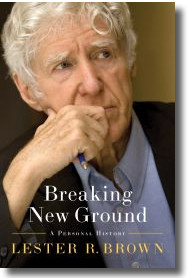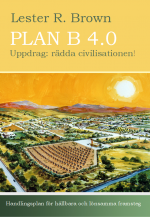Friday, April 04, 2014
Lester Brown, EPI’s intrepid president, has just completed 80 cycles around the sun. As part of our celebration, we’re inviting you to add your comments or stories you might have about Lester, how his writings may have influenced you, to a special birthday blog we have set up.

I met Lester Brown in 1956 on board the SS Victoria sailing from Genoa to Bombay. Lester was part of a 4-H agricultural exchange group heading for an internship on Indian soil. My mother, my sister and myself were on our way from Mexico to India to join our Indian father there. As luck would have it, Lester became my square dancing tutor and partner for our amateur entertainment evening. My 14-year old self saw 22-year old Lester as somebody who “would go far.”
I was sad when we parted company in Bombay but very happy many weeks later when Lester showed up at our doorstep in Nagpur. He had been billeted with Jawahar, an Indian farmer who lived not far from our house. Jawahar had taken him to meet my father, an agronomist who had participated in the agrarian reform and green revolution in Mexico during the 1920’s and 30’s. I have since learned that Lester’s sojourn in India was pivotal in shaping his environmental vocation and vision.
As a septuagenarian I am gratified to see that my teenage intuition was spot on: Lester Brown has indeed gone far. He has more than fulfilled the 4-H pledge of clearer thinking, greater loyalty, larger service and better living not only for the benefit of his community but for that of our planet at large.
And there are comments from people who were inspired to publish his books, like Doris and Lars Almstrom of Sweden:
Everybody can contribute to the realization of Plan B. Pick an issue! Take on a leader role! These were the words that rang in our ears and hearts.
Greatly encouraged by the examples of EPI-supporters on the website and in the long lists of thanks in Plan B 2.0, Lars had an idea... and soon we dreamed up a personal plan: to translate Plan B 2.0 into Swedish, our mother-tongue. We'd work on it chapter by chapter, in our spare time, and then make it available for free on a website that we'd manage. … When we started to see the light in the tunnel, Reah Janise wrote in June that in the autumn of 2007 Lester would be out with a new version, Plan B 3.0.
Wouldn't we be keen to translate and publish that one, too? Hm, hm, preferably as a book, and indeed … perfect for university-courses and all...
No small potatoes for the likes of us. Then Lars had an idea again. Let's take early retirement and be free to translate and promote Plan B full-time! We flexed our schedules, took that retirement.
A year later, as in a dream, we took the train out to Arlanda, Stockholm's airport, to welcome Lester, in September 2008. Could it really be us, two quite ordinary people, who had translated the second book, found it a publisher in Stockholm, 700 kilometres from our home-village, arranged a three-day launch far from home with the help of new acquaintances? And who at first hardly could get our tongues to cooperate in expressing ourselves in spoken English! Here we were to meet one of the most influential Americans in history!
But Lester was so friendly, relaxed and experienced, that at the end of his visit we felt we had become great friends. … What an inspiration! …
By now we've also translated and published World on the Edge (as Civilisationens väg) and Full Planet, Empty Plates (as Hungerns planet) and are working on getting Breaking New Ground ready as soon as possible.
Thank you for giving us hope and food for thought to share with your readers and admirers in Sweden.
And from Howard Youth who worked with Lester at Worldwatch Institute:
The man with the silver curls and piercing blue eyes scrutinized me, fingers stroking his slightly downturned chin. The silence weighed heavily upon me. This was my third or fourth interview for this editing job. Winnowed down from more than 100 applicants, I felt proud and excited. But now I was bargaining for my starting salary.
"I'd like that number boosted a bit because I just had an accident and need to buy a new car," I said.
More chin rubbing. And silence. Then speech from the man in the open-collared blue shirt: "Why do you need a car?"
This question shocked me, but would never surprise me again. My Lester-led Worldwatch training had begun. It was not just going to be a job but an outlook-changing experience.
"I live in Rockville and the office is at Dupont Circle," I said, trying not to sound incredulous.
"Why not take the Metro?"
"Well, I will take the Metro, but I still need something to get me around on weekends, during evenings, and so on." Was this thoughtful man trying to de-rail my request for more pay? Or was there more to it?
It turns o ut there was much more to it. My world view began to expand in that last interview. During my years helping edit and produce World Watch magazine, from the late 1980s to 1992, I would read and edit, edit and read about alternative energy, conservation, food scarcity, climate change, empowerment of women, and new initiatives and inventions that would make our way of life more sustainable. I realized that these ideas in the late 1980s mainly bounced around the corridors of academia and NGOs, but I also knew they were starting to mainstream. I was always impressed by the research team Lester assembled and the diversity of issues we covered in the magazine.
ut there was much more to it. My world view began to expand in that last interview. During my years helping edit and produce World Watch magazine, from the late 1980s to 1992, I would read and edit, edit and read about alternative energy, conservation, food scarcity, climate change, empowerment of women, and new initiatives and inventions that would make our way of life more sustainable. I realized that these ideas in the late 1980s mainly bounced around the corridors of academia and NGOs, but I also knew they were starting to mainstream. I was always impressed by the research team Lester assembled and the diversity of issues we covered in the magazine.
Today, the ideas we presented in World Watch are mainstreamed. And Lester's dogged telling of cautionary tales is part of world dialogues now on auto pilot. When I hear about food scarcity, I often think of Lester. Water scarcity, Sandra Postel. Nuclear issues and alternative energy options, Chris Flavin and Nicholas Lensson. Swords into plough shares, Michael Renner. Women's issues Jodi Jacobson and Mary Gustavson. And so on. Lester's vision extended to other ways to present Worldwatch issues. He hired Jim Gorman to start the magazine, which became another effective tool subscribed to by organizations and libraries the world over.
I left Worldwatch in 1992, moving to India to join my wife on her first overseas tour. … My view of the planet changed since those first interviews with Lester. And the world has changed since then, too. I now see a planet stressed in many ways, yet better in ways thanks to the efforts of Les and other environmental visionaries.
Thanks, Lester! Here's to 80 more years of world vision.
Go to the birthday guestbook to read more of these inspirational comments … and add your own!
Cheers,
Reah Janise Kauffman
Page 1 of 1 pages



